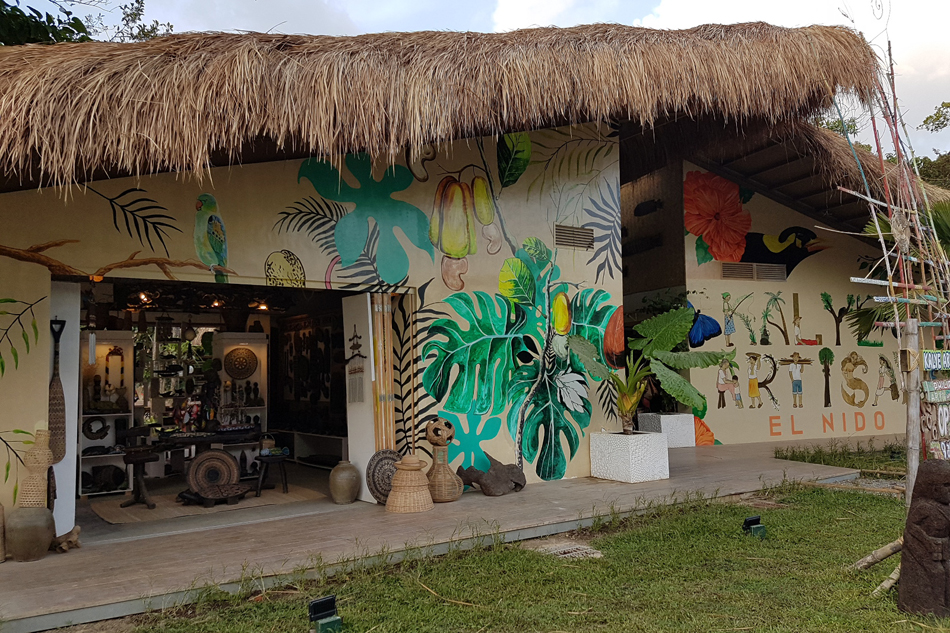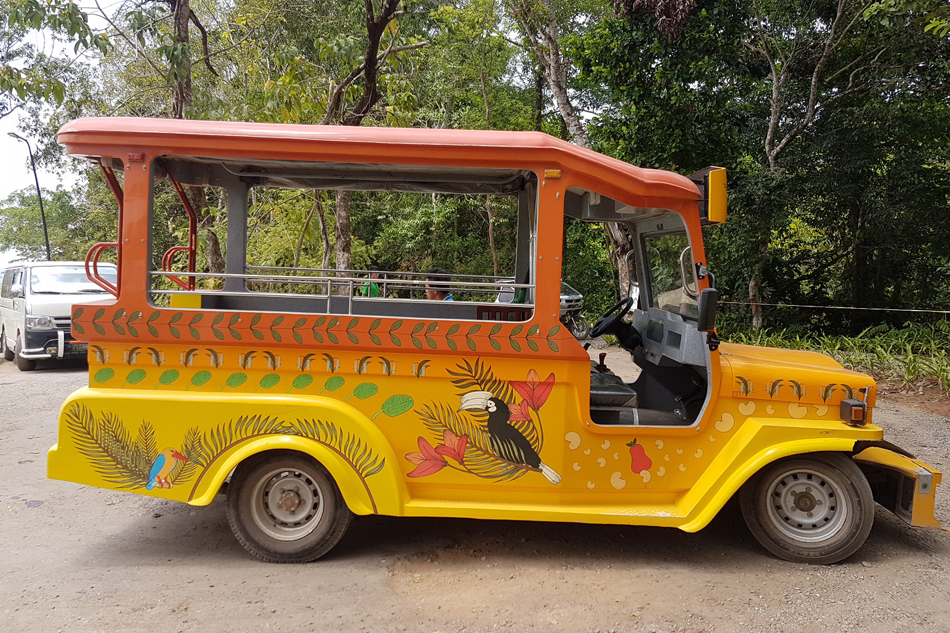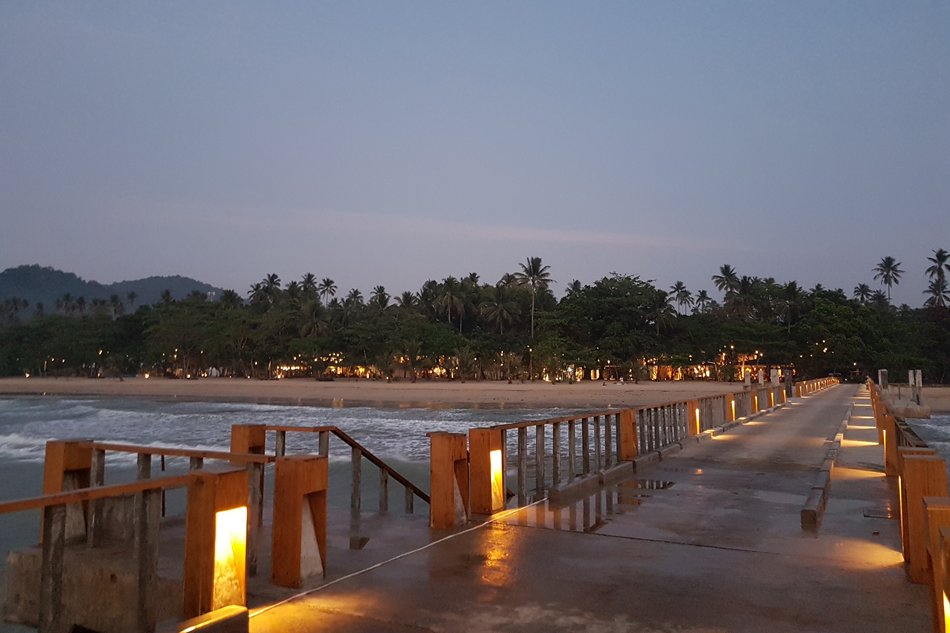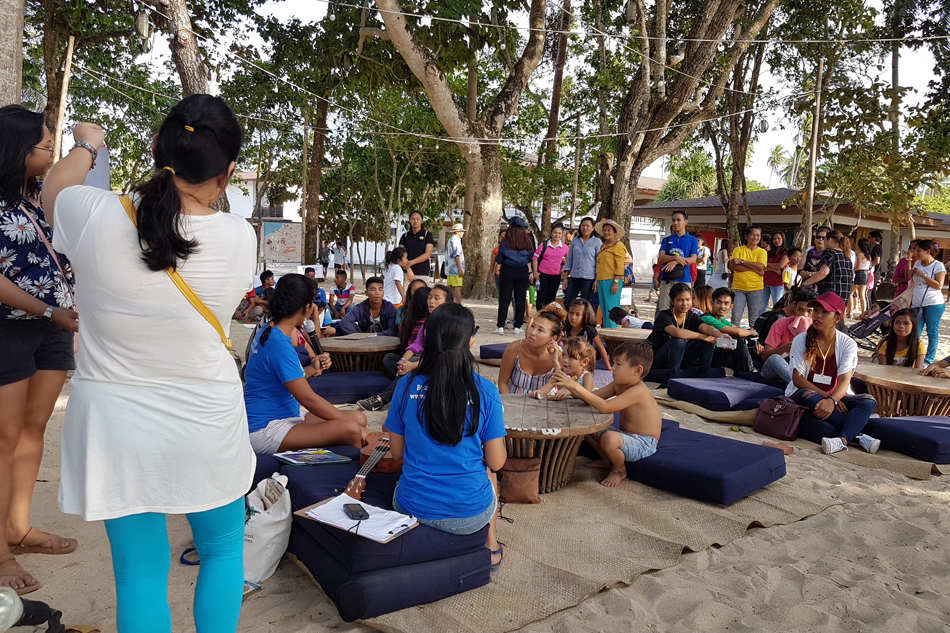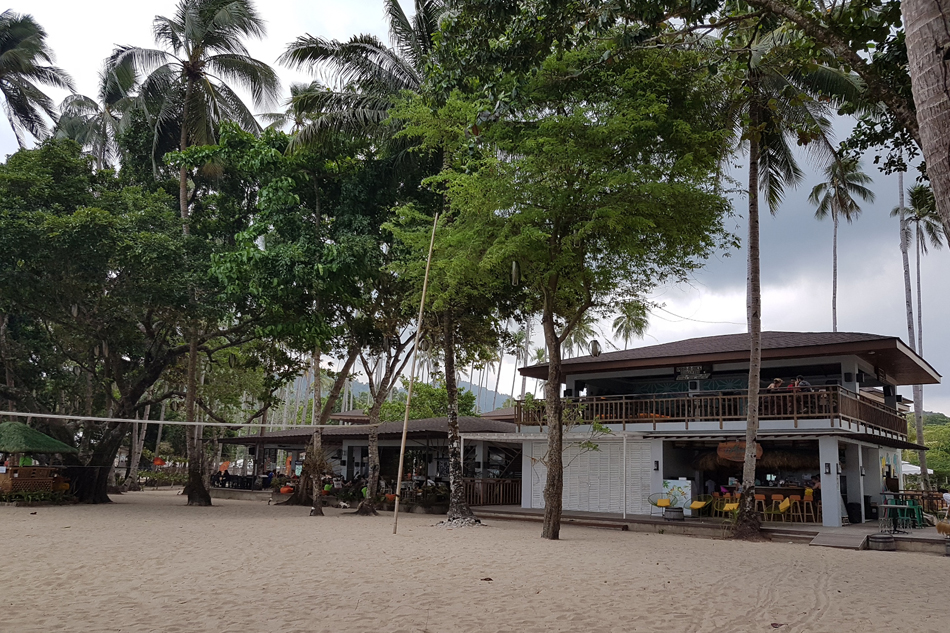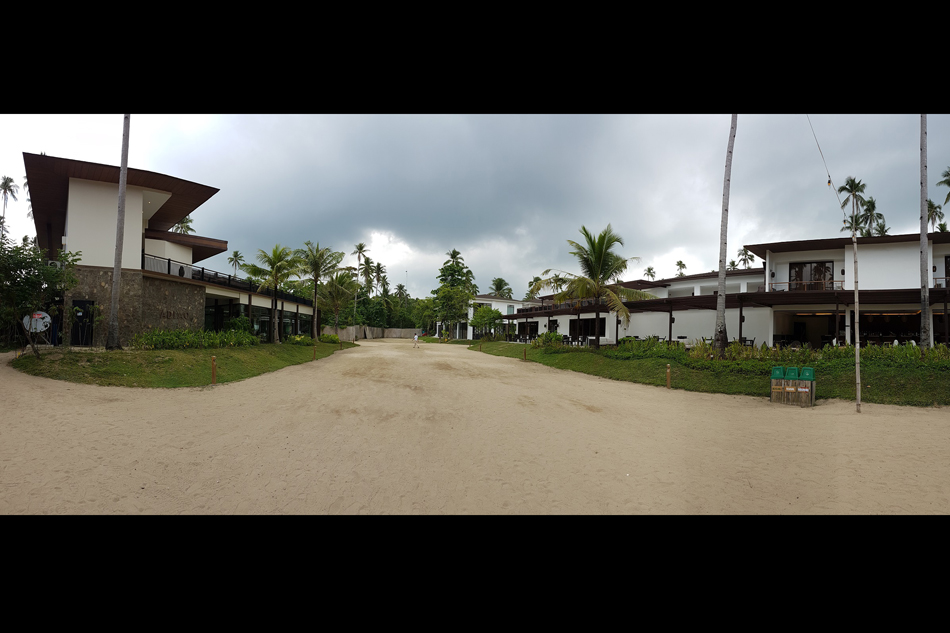Summer 2018: Why this El Nido property doesn't use straws, cups | ABS-CBN

Welcome, Kapamilya! We use cookies to improve your browsing experience. Continuing to use this site means you agree to our use of cookies. Tell me more!
Summer 2018: Why this El Nido property doesn't use straws, cups
Summer 2018: Why this El Nido property doesn't use straws, cups
Angelo G. Garcia
Published Apr 15, 2018 07:25 AM PHT
EL NIDO -- Ayala Land's Lio Beach tourism estate in El Nido, Palawan kicked off summer in grand fashion.
EL NIDO -- Ayala Land's Lio Beach tourism estate in El Nido, Palawan kicked off summer in grand fashion.
A one-day beach festival was held, with several activities headlining the celebration like a food and local products market, big board games on the beach, and interactive wildlife storytelling, among others. The festival ended with a free concert featuring local Palawan artists and UDD, formerly known as Up Dharma Down.
A one-day beach festival was held, with several activities headlining the celebration like a food and local products market, big board games on the beach, and interactive wildlife storytelling, among others. The festival ended with a free concert featuring local Palawan artists and UDD, formerly known as Up Dharma Down.
The celebration can be compared to beach festivals and concerts in Boracay, but Lio Beach is far from the current state of the troubled island paradise.
The celebration can be compared to beach festivals and concerts in Boracay, but Lio Beach is far from the current state of the troubled island paradise.
Boracay can actually learn a thing or two from Lio Beach about responsible and sustainable tourism.
Boracay can actually learn a thing or two from Lio Beach about responsible and sustainable tourism.
ADVERTISEMENT
The tourism estate covers more than 300 hectares of land in El Nido, just a few steps away from the airport and a 30-minute drive from the town proper. It is operated by the Ayala Land-acquired Ten Knots Philippines, Inc., which also operates the luxury El Nido Resorts group.
The tourism estate covers more than 300 hectares of land in El Nido, just a few steps away from the airport and a 30-minute drive from the town proper. It is operated by the Ayala Land-acquired Ten Knots Philippines, Inc., which also operates the luxury El Nido Resorts group.
Lio Beach is the first large-scale tourism estate development by Ayala Group and the company's flagship tourism township project. The company has already put up four resort/hotels namely Casa Kalaw, Hotel Covo, Balai Adlao, and El Nido Cove, and another currently in construction, Seda Hotel. There are also several commercial businesses in the main beach property like restaurants including Seafood Island and Manille Beach Bar.
Lio Beach is the first large-scale tourism estate development by Ayala Group and the company's flagship tourism township project. The company has already put up four resort/hotels namely Casa Kalaw, Hotel Covo, Balai Adlao, and El Nido Cove, and another currently in construction, Seda Hotel. There are also several commercial businesses in the main beach property like restaurants including Seafood Island and Manille Beach Bar.
The property also built Kalye Artisano, a commercial and activity space for local artists. It houses a few stores featuring products of Palawan and from other parts of the country.
The property also built Kalye Artisano, a commercial and activity space for local artists. It houses a few stores featuring products of Palawan and from other parts of the country.
It looks like any other tourism destination but guests would immediately notice something different.
It looks like any other tourism destination but guests would immediately notice something different.
GOING GREEN
GOING GREEN
ADVERTISEMENT
The hotels and the businesses in the estate do not use plastic like single-use straws and cups. Instead of complimentary water bottles, the hotels provide a jug of filtered water in rooms. The structures are far away from the beach and the main mode of transportation are electric vehicles.
The hotels and the businesses in the estate do not use plastic like single-use straws and cups. Instead of complimentary water bottles, the hotels provide a jug of filtered water in rooms. The structures are far away from the beach and the main mode of transportation are electric vehicles.
The property is literally very green, with trees everywhere. The developer built a viaduct around trees as one of the main access roads to the beach. It employs proper solid waste management, operating their own materials recovery facility.
The property is literally very green, with trees everywhere. The developer built a viaduct around trees as one of the main access roads to the beach. It employs proper solid waste management, operating their own materials recovery facility.
Although electricity is not from a renewable source, renewable energy is already in the planning stages.
Although electricity is not from a renewable source, renewable energy is already in the planning stages.
“When you talk about sustainability, in the context of Lio for example, it's not just something the group came up with or because it sounded nice at that moment. It's a continuation of a long-term commitment to developing responsibly -- in this case, developing extra responsibly because they are going into a place that has been long known for its very special natural features,” explained Lio Beach director of environment and sustainability Mariglo Laririt.
“When you talk about sustainability, in the context of Lio for example, it's not just something the group came up with or because it sounded nice at that moment. It's a continuation of a long-term commitment to developing responsibly -- in this case, developing extra responsibly because they are going into a place that has been long known for its very special natural features,” explained Lio Beach director of environment and sustainability Mariglo Laririt.
She further said that the sustainability efforts in El Nido have long been an advocacy of Ten Knots, which complements Ayala Land's vision of responsible development.
She further said that the sustainability efforts in El Nido have long been an advocacy of Ten Knots, which complements Ayala Land's vision of responsible development.
ADVERTISEMENT
“Even before sustainability was used in a manner that it is used today, Ten Knots has shown that being environmentally responsible and taking care of the community is good for business. That's important because not all businesses think that way. The company comes from a long history of island resorts management, done in a sustainable manner. And then there's the Ayala, which follows a very strict standard in development and very strong corporate governance. It's continuing a tradition of sustainability,” she said.
“Even before sustainability was used in a manner that it is used today, Ten Knots has shown that being environmentally responsible and taking care of the community is good for business. That's important because not all businesses think that way. The company comes from a long history of island resorts management, done in a sustainable manner. And then there's the Ayala, which follows a very strict standard in development and very strong corporate governance. It's continuing a tradition of sustainability,” she said.
CONDUCTING STUDIES
CONDUCTING STUDIES
El Nido is located in Northern Palawan, an island that is known to be the Philippines' “Last Frontier.” But the recent government crackdown on tourism destinations like Palawan revealed that El Nido also has a problem.
El Nido is located in Northern Palawan, an island that is known to be the Philippines' “Last Frontier.” But the recent government crackdown on tourism destinations like Palawan revealed that El Nido also has a problem.
El Nido is known for its natural beauty, from white sand beaches to hidden lagoons to limestone karsts. The small town welcomes thousands of tourist every year.
El Nido is known for its natural beauty, from white sand beaches to hidden lagoons to limestone karsts. The small town welcomes thousands of tourist every year.
Before building Lio Beach, which opened last year, Ayala Land made sure that they are not hurting the environment.
Before building Lio Beach, which opened last year, Ayala Land made sure that they are not hurting the environment.
ADVERTISEMENT
“Even before starting to build, a lot of studies were conducted. Even before the land development phase, there were biodiversity studies, coastal dynamics, flood studies, etc., the works. We know that we have to get to know the nature first so we know what we're dealing with,” said Jamie Dichaves, sustainability officer of Lio Beach.
“Even before starting to build, a lot of studies were conducted. Even before the land development phase, there were biodiversity studies, coastal dynamics, flood studies, etc., the works. We know that we have to get to know the nature first so we know what we're dealing with,” said Jamie Dichaves, sustainability officer of Lio Beach.
In the property they found one of the last remaining littoral forests or forests located near the shoreline. Wildlife still thrive in the area like the Palawan hornbill, peacock peasant, civet, pangolin, and many more. The waters of Lio Beach also have several reefs and the beach itself are nesting grounds for sea turtles.
In the property they found one of the last remaining littoral forests or forests located near the shoreline. Wildlife still thrive in the area like the Palawan hornbill, peacock peasant, civet, pangolin, and many more. The waters of Lio Beach also have several reefs and the beach itself are nesting grounds for sea turtles.
Ayala Land still has a lot of developments planned for the property like more hotels, commercial areas, residential buildings, and other expansion projects by other developers. However, all plans are carefully studied and must abide by environmental laws. In fact, Ayala Land is not building and not allowing developers to build structures higher than coconut trees. And they already dedicated 80 hectares of land to forests.
Ayala Land still has a lot of developments planned for the property like more hotels, commercial areas, residential buildings, and other expansion projects by other developers. However, all plans are carefully studied and must abide by environmental laws. In fact, Ayala Land is not building and not allowing developers to build structures higher than coconut trees. And they already dedicated 80 hectares of land to forests.
CARBON FOREST
“For the forest in general, we are part of Ayala's carbon neutrality program. In that program, it says that the whole of Ayala is striving to be carbon neutral by 2030. So part of that program is to account for all the forest of the different Ayala properties in the Philippines,” Dichaves shared.
“For the forest in general, we are part of Ayala's carbon neutrality program. In that program, it says that the whole of Ayala is striving to be carbon neutral by 2030. So part of that program is to account for all the forest of the different Ayala properties in the Philippines,” Dichaves shared.
“For Lio in particular, we have dedicated 80 hectares of the 325 hectares as carbon forest meaning, nothing will be built there. But then it doesn't mean that the remaining land will be dedicated to structures. Each lot has a building limit of 60 percent maximum land occupation,” she added.
“For Lio in particular, we have dedicated 80 hectares of the 325 hectares as carbon forest meaning, nothing will be built there. But then it doesn't mean that the remaining land will be dedicated to structures. Each lot has a building limit of 60 percent maximum land occupation,” she added.
ADVERTISEMENT
They also make sure that everyone in the property, from business owners to employees to guests, take part in its green advocacy.
They also make sure that everyone in the property, from business owners to employees to guests, take part in its green advocacy.
“I think the no plastic straws and cups rule makes us head and shoulders above similar establishments, not just the country but all over the world. We were able to get the cooperation of everybody here. And that's so important for people who are thinking. There are many stakeholders in this case, one is if you're an investor, and you want to do something right, when do you do it? You do it as early as possible,” Laririt said.
“I think the no plastic straws and cups rule makes us head and shoulders above similar establishments, not just the country but all over the world. We were able to get the cooperation of everybody here. And that's so important for people who are thinking. There are many stakeholders in this case, one is if you're an investor, and you want to do something right, when do you do it? You do it as early as possible,” Laririt said.
ADVERTISEMENT
ADVERTISEMENT




